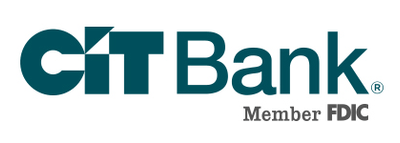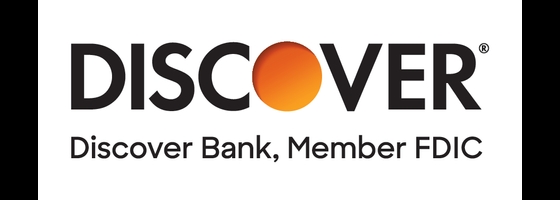- Higher interest rates than traditional savings accounts
- More options for withdrawing your money
- FDIC insured
What Is a Money Market Account? Pros, Cons, Alternatives

Our evaluations and opinions are not influenced by our advertising relationships, but we may earn a commission from our partners’ links. This content is created by TIME Stamped, under TIME’s direction and produced in accordance with TIME’s editorial guidelines and overseen by TIME’s editorial staff. Learn more about it.
A money market account is a bank or credit union account that typically earns a higher interest rate than a regular savings account. Like checking and savings accounts, money market accounts are insured by the Federal Deposit Insurance Corporation (FDIC) or National Credit Union Association (NCUA) up to $250,000 per account holder.
While a money market account earns interest on the balance at a higher rate than traditional savings accounts, it functions a bit differently. With a money market account, the account holder can withdraw funds using several methods including by check, debit card, ATM, in person, or using electronic transfer. Withdrawals by check, debit card, or electronic transfer may be limited; withdrawals using an ATM or in person may be unlimited.
Money market accounts typically have higher interest rates than regular savings accounts, but those rates have not been very high over the last 10 years. In January 2013, the national rate on money market accounts was 0.11% annual percentage yield (APY), and rates continued to decline over the next four years.
Rates did start to rise in 2018 with a peak of 0.19% APY in 2019, but declined again starting in 2020. In 2022, the Federal Reserve started raising interest rates to combat inflation, which led to higher rates for money market accounts. By the end of 2022, interest rates were at 0.38% APY, and by June 2023, had reached 0.59% APY.
Rates fluctuate often due to market conditions, but also can depend on the amount in the money market account. In general, the larger the account balance, the higher the interest you can earn.
As of Feb. 8, 2024, the money market interest rate stood at 0.65% APY, according to the FDIC.
Minimum balance requirements for a money market account vary by financial institution. Some financial institutions have no minimum balance requirement, others have high minimum balance requirements and some fall in between. For instance, CIT Bank MMA requires a minimum balance of $100 to open a money market account.
It’s important to review the pros and cons of money market accounts before deciding whether or not to open one. Because you earn higher interest rates than with a traditional savings account, a money market account can be a great choice to set aside some emergency cash or start building your savings. And unlike a traditional savings account, you have more options for withdrawing your money when you want it. Finally, while MMAs can be used as investment products, they are also insured by the FDICup to $250,000 or NCUA.
However, because some financial institutions limit withdrawals on money market accounts, you could incur fees if you exceed those limits. Likewise, many money market accounts have minimum balance requirements. If the balance drops below that amount, you could incur fees. If you plan to use your money market account as an investment tool, it likely will have lower returns compared to other investments such as buying stocks or investing in real estate.
Money market accounts typically earn higher interest rates than traditional savings accounts. When compared to other interest-earning accounts and investments, however, they often earn lower rates.
Like money market accounts, a high-yield savings account (HYSA) earns a higher interest rate than regular savings accounts. Also, withdrawals from HYSAs usually are limited, similar to a MMA. However, a high-interest savings account may earn a higher rate than a MMA, but without any minimum balance or deposit requirements. HYSAs also may have fewer fees than a MMA, but it’s important to research these details before choosing one.
A certificate of deposit (CD) is another type of savings account. When it comes to accessing your money, a CD has more limitations than a regular savings account or a money market account. With a CD, you agree to deposit your money and leave it untouched for a specific term which can range from months to years. If you make withdrawals before the maturity date, you will incur a penalty fee. On the plus side, CD rates often are higher than money market account rates, so if you don’t plan to use the money for a while, you could earn more with a CD. What’s more, the rate is fixed for the term of the CD. MMA rates can fluctuate.
Money market accounts often earn higher interest rates than a regular savings account. In addition, your money may be more easily accessed from a MMA. Account holders usually cannot access a regular savings account by check or debit card as you can with a MMA. However, some regular savings accounts may not have minimum balance requirements that could incur fees. It’s important to compare all the features of each account type—and the offerings of each specific account—in order to determine which is the best choice for you.
While a money market account is an interest-bearing account for cash, mutual funds are investments that use the funds from investors to purchase stocks, bonds, and other securities. The return on mutual funds can be higher than a MMA, but there’s also a risk of losing your investment if the performance of the fund takes a nosedive. Accessing money from a mutual fund also takes longer than a MMA because you have to sell your shares to receive money. In addition, while MMAs are insured by the FDIC or NCUA, mutual funds are not.
A high-interest checking account earns a higher rate than a regular checking account. However, to receive that rate, account holders often have to meet certain requirements each month. These can include maintaining a minimum balance and having a minimum number of direct deposits or automated clearing house (ACH) payments, plus a minimum number of debit card transactions. Other requirements could include signing up for paperless statements and online banking. While a MMA usually has limits on withdrawals and could have minimum balance requirements, they may be less than those associated with a high-interest checking account.
Despite sounding similar, money market accounts and money market funds are not the same. Whereas a MMA is a bank account earning a higher rate of interest compared to a regular savings account, a money market fund is a type of mutual fund. While a money market fund is a lower-risk mutual fund, it still functions the same and does not receive protection from the FDIC or NCUA.
If you want to maximize how much interest you earn on your savings, a money market account can be a good option compared to other savings accounts because it usually earns a higher rate of interest. Plus, if you need quick access to your money, you can do so in a variety of ways. And, compared to some savings accounts and tools, a money market account can incur less risk while building on your savings.
Money market accounts can be an ideal way to save money for specific goals such as paying college tuition, saving for a new car, or funding home improvements. The bonus is the interest you will earn as you save toward your goal. Then, when you’re ready, you can take out the money you need without incurring fees provided you make withdrawals in accordance with the account’s requirements.
When searching for the right money market account, there are a number of factors to consider and questions to ask. These include:
Knowing the answers to these questions can help you find the best money market account to meet your needs and financial goals.
A money market account typically earns a higher interest rate than a regular savings account, so you can grow your money while building your savings. And, unlike a regular savings account, there are typically more ways to access your money when you need it. Putting your money in a MMA can be an effective tool to build out your financial portfolio.
The information presented here is created by TIME Stamped and overseen by TIME editorial staff. To learn more, see our About Us page.






